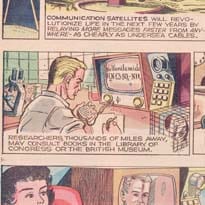Virtual visitors
By Ben Stevens H P Stevens, on 27 June 2012
The subtitle of Dr Melissa Terras’ Lunch Hour Lecture at the British Museum on 14 June asked an intriguing question: why would anyone want to visit the virtual British Museum (BM) collections online? After all, surely the allure of the Museum is seeing the Rosetta Stone, the Elgin Marbles or the spectacular Great Court in person? 
The answer, as Dr Terras pointed out, largely depends on who you’re asking. The average tourist would undoubtedly say that they’d prefer to visit in person – hence why the BM received 5.8 million visitors in 2011.
However, when you look at traffic to its website in the same period, it received 10.5 million visits and 60 million page views. So, why the discrepancy?
As Deputy Director of UCL’s Centre for Digital Humanities (UCLDH), Dr Terras is well versed in analysing this sort of online user data.
For this absorbing talk, she drew extensively on some analysis undertaken by two of her PhD students Claire Ross and Vera Motyckova, alongside colleagues at the Museum itself. They focused their study on the BM’s online collection database during the period 18 June 2009–17 June 2010.
 Close
Close



